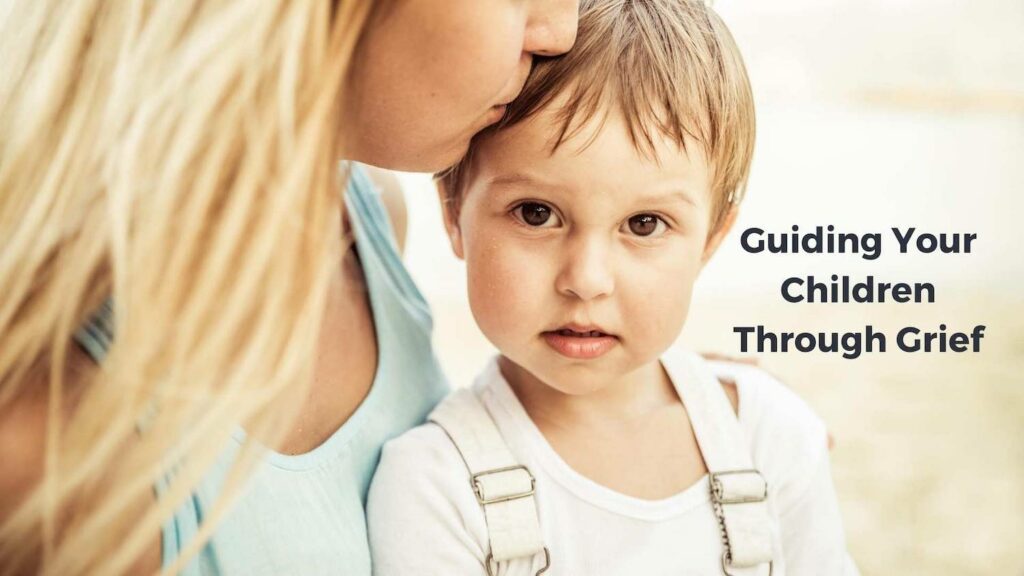One of the hardest challenges a parent faces is watching their child hurt. As moms, we would fix it if we could, and many times, we feel that we should make the pain go away. However, when God entrusts a child with suffering, it is important to understand and trust that He is at work. We will never understand the age-old mystery—Does God allow or appoint suffering?
When it came to suffering, Job concluded that this knowledge was “too wonderful (difficult to understand) for me!” Yet, we do know that God is in the crucible of suffering with us. The road of grief provides an opportunity for parents to model trust in God while pointing your children to Him, as well.
When a child loses their father, or significant person in their life, one of the first questions asked by the mom is, “Will my kids be okay?” I have good news for you, mom, with God, the Creator of all things, your children will be more than okay! Your own perspective on this loss or disappointment is crucial in pointing them to Jesus. Every. Single. Day.
Grief may lie dormant for years until their understanding catches up with their reality. Don’t be afraid to feel the sad and tender moments with them always reminding them of the hope they have in the promises of God.
The dos and don’ts of guiding your children through grief:
Don’ts:
- Don’t shield them from pain. It is natural to want to protect them from it, but God has allowed it and will use it for their good and His glory.
- Don’t hide your emotions. In fact, this is a good time to teach them that all feelings are okay. For our family, we ended the day sharing together what made us feel happy, sad, or mad. I started this intimate time by inviting them into my own grief. It was a simple and meaningful way to find comfort through our own family support group. The parent will carry some grief for the child but she must work hard to keep her child from carrying her grief. Sharing the experience together is healthy.
- Don’t tell them not to cry. Tears are good. God captures our tears in a bottle and records them in a book. Encourage them to pour out their heart to God knowing He hears our cry.
- Don’t allow them to use grief as a crutch, but rather a chisel for God to work in their lives.
- Don’t assume all is well. Grief is unavoidable. Pray for God to uncover areas of pain that must be dealt with.
Do’s:
- Accept suffering as a gift from God. He has entrusted you and your children with a very hard thing He will use it for good. Perhaps death is the tool He uses to bring your child to salvation. Loss brings great gain, but it is a process He will use to prepare them for the call He has on their life.
- Rest in the sovereignty of God. He is in complete control when life is out of control. The earlier in life we settle this matter, the better.
- Take time to carefully pull grief out of them, as you would a splinter before infection sets in. Do this through meaningful moments and consistent conversations.
- Provide normalcy as much as possible, with sensitivity, knowing that transition to a new normal is not easy. As they ride the roller coaster of grief, enforce important boundaries, don’t back off from discipline, and develop a routine which gives important security.
- Recognize that God’s timing is perfect. It is easy to believe the lie that God isn’t fair. How could a loving God allow a young child to suffer? However, we must return our focus on the attributes of God—He is loving, kind, just, merciful, and knows the plans He has for each one of us. He truly works all things together for the good to those who love Him.






